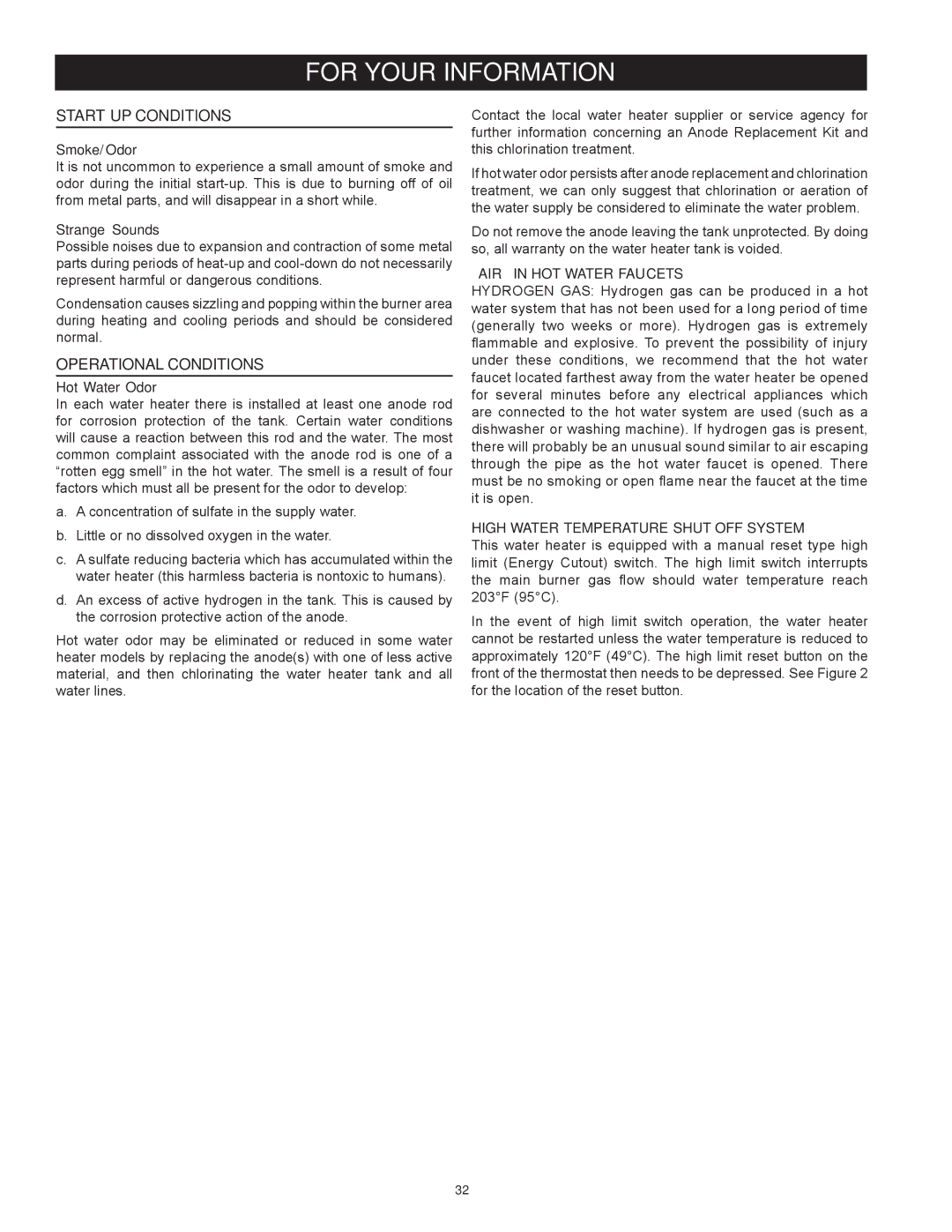
For Your Information
Start Up Conditions
Smoke/Odor
It is not uncommon to experience a small amount of smoke and odor during the initial
Strange Sounds
Possible noises due to expansion and contraction of some metal parts during periods of
Condensation causes sizzling and popping within the burner area during heating and cooling periods and should be considered normal.
Operational Conditions
Hot Water Odor
In each water heater there is installed at least one anode rod for corrosion protection of the tank. Certain water conditions will cause a reaction between this rod and the water. The most common complaint associated with the anode rod is one of a “rotten egg smell” in the hot water. The smell is a result of four factors which must all be present for the odor to develop:
a.A concentration of sulfate in the supply water.
b.Little or no dissolved oxygen in the water.
c.A sulfate reducing bacteria which has accumulated within the water heater (this harmless bacteria is nontoxic to humans).
d.An excess of active hydrogen in the tank. This is caused by the corrosion protective action of the anode.
Hot water odor may be eliminated or reduced in some water heater models by replacing the anode(s) with one of less active material, and then chlorinating the water heater tank and all water lines.
Contact the local water heater supplier or service agency for further information concerning an Anode Replacement Kit and this chlorination treatment.
If hot water odor persists after anode replacement and chlorination treatment, we can only suggest that chlorination or aeration of the water supply be considered to eliminate the water problem.
Do not remove the anode leaving the tank unprotected. By doing so, all warranty on the water heater tank is voided.
“AIR” IN HOT WATER FAUCETS
HYDROGEN GAS: Hydrogen gas can be produced in a hot water system that has not been used for a long period of time (generally two weeks or more). Hydrogen gas is extremely flammable and explosive. To prevent the possibility of injury under these conditions, we recommend that the hot water faucet located farthest away from the water heater be opened for several minutes before any electrical appliances which are connected to the hot water system are used (such as a dishwasher or washing machine). If hydrogen gas is present, there will probably be an unusual sound similar to air escaping through the pipe as the hot water faucet is opened. There must be no smoking or open flame near the faucet at the time it is open.
HIGH WATER TEMPERATURE SHUT OFF SYSTEM
This water heater is equipped with a manual reset type high limit (Energy Cutout) switch. The high limit switch interrupts the main burner gas flow should water temperature reach 203°F (95°C).
In the event of high limit switch operation, the water heater cannot be restarted unless the water temperature is reduced to approximately 120°F (49°C). The high limit reset button on the front of the thermostat then needs to be depressed. See Figure 2 for the location of the reset button.
32
